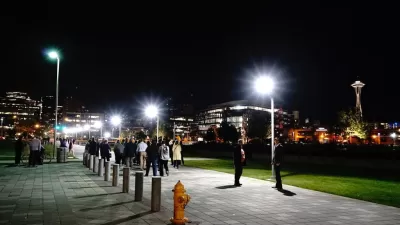A recent study has named the "smartest" cities in Canada.
"The Canadian Council on Learning's annual Composite Learning Index, now in its third year, is created with data from 25 indicators, which in turn are grouped into four "pillars" of learning, originally developed by the United Nations Educational, Scientific and Cultural Organization (UNESCO). The "learning to know" pillar focuses on formal education. It includes university attainment, high-school dropout rates, the proportion of youth who pursue post-secondary studies, and the math, science, reading and problem solving scores of teenagers. "Learning to do," the second pillar, focuses on applied skills. It looks at the number of local vocational schools and the proportion of employees who have access to workplace training. The "learning to live together" pillar attempts to measure the social values in a community. It looks at things like the proportion of Canadians who volunteer, as well as participation in clubs, and the percentage who socialize with other cultures. The last pillar, the "learning to be" pillar, looks at cultural opportunities, and includes spending on books, museums, the arts, sports and recreation, as well as access to cultural resources."
"How your city scores could have a big impact on your life. For starters, if your city ranks higher, 'you'll make more money,' says Kevin Stolarick, research director of the Martin Prosperity Institute in Toronto, who studies communities and worked on the forthcoming Canadian edition of Who's Your City? with demographer Richard Florida. 'You will become a more skilled, educated and talented individual, and that's going to be reflected in the money you make.' Adds Dale Kirby, education professor at Memorial University in St. John's, 'we've seen consistently from the OECD that if you have a higher level of education among a population you're going to be doing reasonably well economically.'"
FULL STORY: Canada's smartest cities

Planetizen Federal Action Tracker
A weekly monitor of how Trump’s orders and actions are impacting planners and planning in America.

Maui's Vacation Rental Debate Turns Ugly
Verbal attacks, misinformation campaigns and fistfights plague a high-stakes debate to convert thousands of vacation rentals into long-term housing.

Restaurant Patios Were a Pandemic Win — Why Were They so Hard to Keep?
Social distancing requirements and changes in travel patterns prompted cities to pilot new uses for street and sidewalk space. Then it got complicated.

In California Battle of Housing vs. Environment, Housing Just Won
A new state law significantly limits the power of CEQA, an environmental review law that served as a powerful tool for blocking new development.

Boulder Eliminates Parking Minimums Citywide
Officials estimate the cost of building a single underground parking space at up to $100,000.

Orange County, Florida Adopts Largest US “Sprawl Repair” Code
The ‘Orange Code’ seeks to rectify decades of sprawl-inducing, car-oriented development.
Urban Design for Planners 1: Software Tools
This six-course series explores essential urban design concepts using open source software and equips planners with the tools they need to participate fully in the urban design process.
Planning for Universal Design
Learn the tools for implementing Universal Design in planning regulations.
Heyer Gruel & Associates PA
JM Goldson LLC
Custer County Colorado
City of Camden Redevelopment Agency
City of Astoria
Transportation Research & Education Center (TREC) at Portland State University
Jefferson Parish Government
Camden Redevelopment Agency
City of Claremont





























